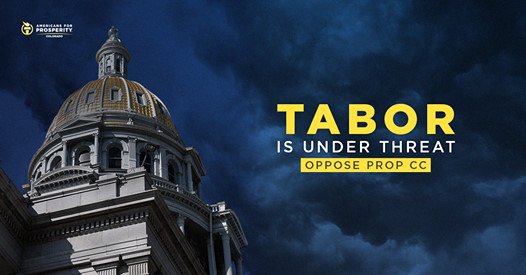GUEST COLUMN: Voters should defend their TABOR refunds
Oct 5, 2019
Last year, Colorado voters overwhelmingly rejected last year’s ballot measure that amounted to a multibillion-dollar tax increase on families and businesses. But taxpayers beware: pro-tax activists are back on the ballot again this November with a measure to weaken Colorado’s historic Taxpayer Bill of Rights, so that they can more easily pass tax increases in the future.
This year’s ballot measure is Proposition CC, which would alter TABOR in a way that would take money out of taxpayers’ pockets. Since it was approved by voters in 1992, TABOR has provided Coloradans with the strongest set of taxpayer protections in the country. By guaranteeing refunds of excessive taxes, restricting spending to sensible growth rates, and giving Coloradans the ability to vote on tax increases, TABOR has been instrumental in the state’s booming economy. Without TABOR, Colorado would likely not be one of the fastest growing states in the country, even as the state continues to rank high on measurements of public health and education.
Since TABOR limits the amount of money the state is allowed to spend, surplus revenue in excess of the cap must be refunded to Colorado taxpayers. Generally, the revenue cap on the state level grows with inflation plus population increases. Due to a strong economy, however, revenue collections are coming in above the caps, which means the state will have to refund about $500 million to Colorado taxpayers next year, and about $1.3 billion over the next three years. For millions of taxpayers across the state, these refunds could help cover a week’s worth of groceries, family activities, or even help to pay some rent.
But as of now, potentially $1.3 billion in refunds to taxpayers are in limbo and could be scrapped forever.
To read the rest of this story, please click (HERE):






